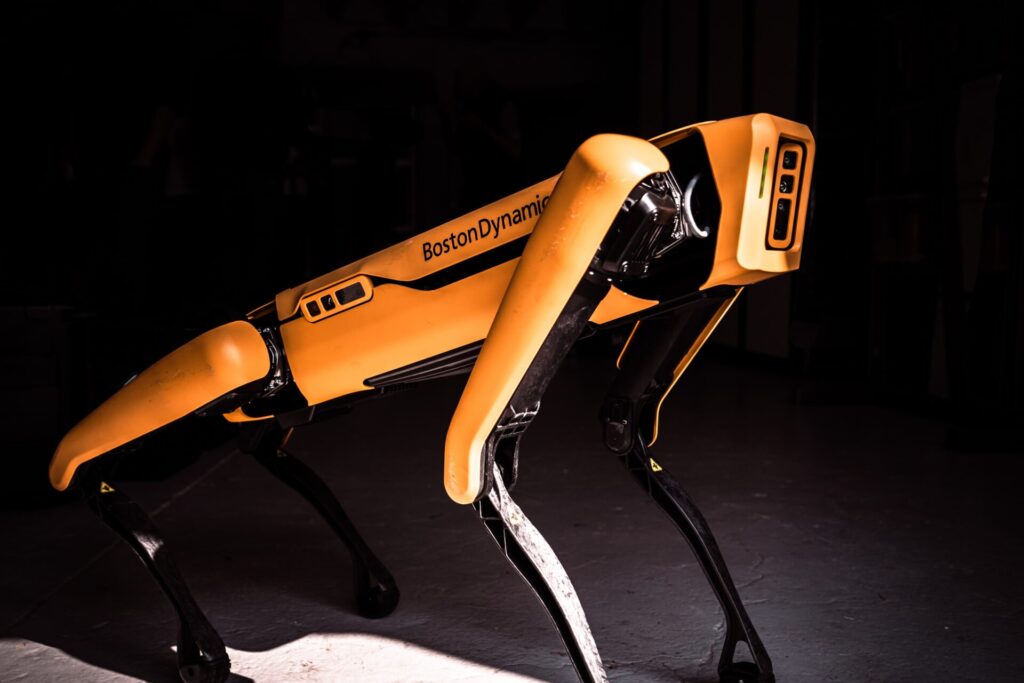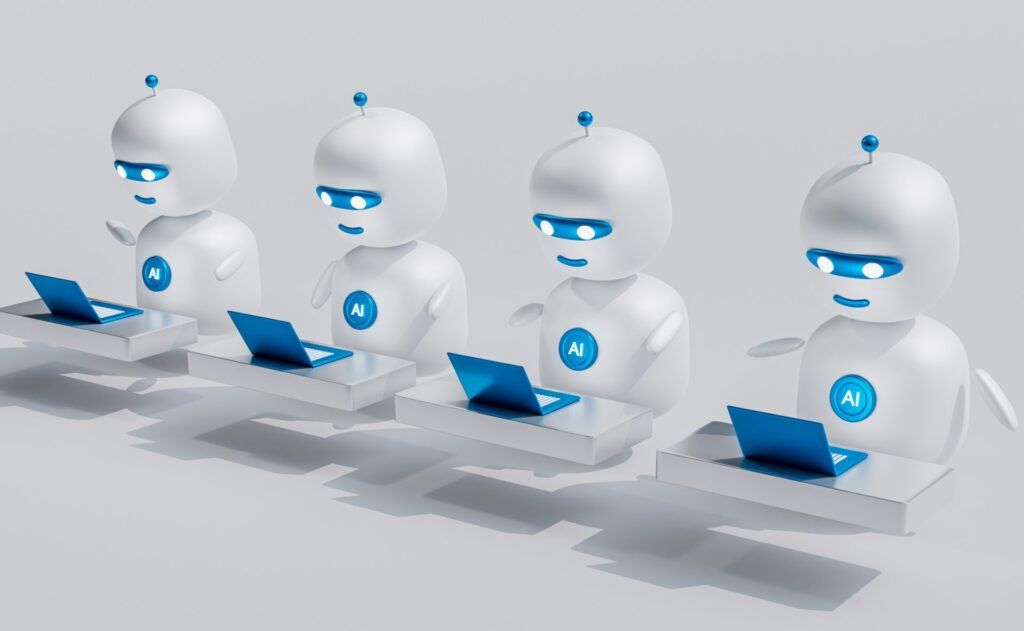🏋️ Welcome, BurnFitters!!
As someone deeply involved in managing a fitness app, I’m keenly observing AI’s impact on our sector. Several fitness startups are already integrating AI into their services. While these innovations are still evolving, their potential is undeniable. It leads me to think deeply about how we might harness AI to enrich our users’ experiences.
AI has become a frequent topic at dinner tables, and in my social circles, I’m often asked about its influence on the fitness industry. While I don’t possess a crystal ball, my insights are shaped by close observation and industry experience. For instance, when asked if AI will soon replace personal trainers, I confidently say, ‘Not in the immediate future.’ In this blog, I’ll explore why I believe this and share my thoughts on AI’s role in personal training. Remember, these are my personal views, so consider them as one individual’s perspective on this evolving topic.

The Rise of AI in Fitness
The fitness industry is undergoing a remarkable transformation with the integration of Artificial Intelligence (AI). While I may not have grown up with these technological advancements, I am excited to see how they empower the next generation in the fitness industry. AI technology has the potential to revolutionize personal training by augmenting, rather than replacing, human trainers with intelligent solutions. With advancements in AI, fitness enthusiasts can now experience personalized workout plans and real-time feedback through AI-based fitness programs. These technologies offer a new level of efficiency and accessibility, allowing individuals to receive 24/7 guidance and support from AI trainers. However, the question remains: will AI completely replace human personal trainers?
Exploring the Potential of AI in Personal Training
The incorporation of AI technology into the fitness sector has led to remarkable progress. AI-enabled fitness gadgets and apps are increasingly popular, providing tailored exercise routines, instant feedback, and insights based on data. If you’ve ever used these services, you’d be amazed at their rapid and accurate delivery of impressive results. This technological advancement has significantly improved the efficiency and accessibility of personal training.
AI trainers offer round-the-clock guidance and support – yes, 24/7. They deliver personalized workout routines that are specifically tailored to an individual’s goals, preferences, and fitness levels. The remarkable aspect of these AI trainers is their ability to adapt and modify workout plans in real time, showcasing an incredible level of responsiveness and customization.
The fitness sector has seen a significant shift with the introduction of AI-based fitness programs. These programs leverage AI technology to analyze user data, track progress, and provide personalized recommendations. By harnessing machine learning algorithms, AI trainers can continuously learn from user interactions to deliver more accurate guidance.

Benefits and Limitations of AI Personal Trainers
AI personal trainers come with a host of advantages, such as offering personalized and adaptable workout plans. They deliver instant feedback and motivation, which significantly boosts user engagement and commitment to their fitness routines. Moreover, these AI trainers are adept at tracking and analyzing fitness data, facilitating efficient monitoring of progress. And as previously mentioned, they’re available 24/7. There’s no need to wait for a specific time or schedule a meeting with a personal trainer. The assistance is super instant, providing convenience and flexibility in your fitness journey.
Indeed, despite the remarkable advancements in technology, AI personal trainers do have their limitations. They lack the human touch and emotional connection that human trainers provide. Human trainers are particularly skilled at understanding complex movements and offering precise corrections in form, a subtlety that AI trainers currently find challenging.
Personalized Workout Plans and Human Interaction
The vital role of human interaction in fitness training is immeasurable. Human trainers bring emotional support, motivation, and tailored guidance that may be difficult for AI trainers to replicate. Picture this: you’re lounging on the couch, contemplating a gym session but lacking the motivation to stand up. Can a voice or message from an AI trainer truly inspire you to get moving and head to the gym? In contrast, a simple call from a personal trainer might be far more effective. Human trainers are adept at identifying individual needs, preferences, and constraints, and they customize workout plans to accommodate these aspects. Such personalization ensures that each person receives a fitness program that’s specifically designed for them.
Human trainers also cultivate a personal bond with their clients, fostering accountability and nurturing strong relationships. They provide encouragement, address concerns, and offer direct, hands-on guidance as needed.

Indeed, while AI can swiftly analyze data and respond, it falls short in correcting physical form during exercise routines. Personal training goes beyond just issuing workout schedules and monitoring dietary habits. A key element of personal training is the correction of a trainee’s form to optimize results and prevent injuries. Although AI may one day be able to identify exercise forms via video analysis, it lacks the ability to physically interact and adjust a person’s posture or form. This highlights the irreplaceable nature of the human element in certain professions.
Reflecting on the future of various jobs, it’s interesting to note that roles like lawyers and researchers are often considered at risk due to AI and automation. In contrast, positions such as janitors and priests are seen as more resilient to these technological advances. This resilience is attributed to the complex human interactions, empathy, and physical tasks involved in these roles, which AI is currently unable to replicate. Personal trainers, similar to janitors and priests, provide a level of human interaction and physical assistance unmatched by AI, emphasizing their ongoing relevance in our society.
However, this doesn’t imply that AI has no place in personal training. In fact, integrating AI technology with human trainers can create an optimal blend of both worlds. AI can aid trainers in data analysis, progress tracking, and offering individualized suggestions. This synergy allows human trainers to concentrate on building client relationships while utilizing AI’s strengths to enrich the overall training experience.
The Future of Personal Training with AI
AI technology has the potential to revolutionize the fitness industry, but it’s crucial to balance AI technology with human expertise. While AI trainers can provide personalized guidance and adaptive workout plans, they lack the human touch and emotional support that human trainers offer. The future of personal training lies in the collaboration between AI and human trainers, leveraging the strengths of both to provide individuals with personalized guidance, data-driven insights, and emotional support throughout their fitness journey.
In conclusion, as we embrace the advancements of AI in the fitness industry, it’s essential to remember the irreplaceable value of human connection and expertise. AI will undoubtedly play a significant role in shaping the future of fitness, but it will do so in tandem with the invaluable insights and emotional support that only human trainers can provide. Let’s look forward to a future where technology and humanity work hand in hand to create the best fitness experiences.
However, this doesn’t mean that AI technology has no role to play in personal training. In fact, combining AI technology with human trainers can offer the best of both worlds. AI can assist trainers in analyzing data, tracking progress, and providing personalized recommendations based on the insights gained from user interactions. This collaboration allows human trainers to focus on building rapport with their clients while leveraging AI’s capabilities to enhance the overall training experience.
The Future of Personal Training with AI
AI technology has the potential to revolutionize the fitness industry by replacing personal trainers with intelligent machines. However, it is important to strike a balance between AI technology and human expertise for optimal results. While AI trainers can provide personalized guidance and adaptive workout plans, they lack the human touch and emotional support that human trainers offer. The future of personal training lies in the collaboration between AI and human trainers, leveraging the strengths of both to provide individuals with personalized guidance, data-driven insights, and emotional support throughout their fitness journey.



